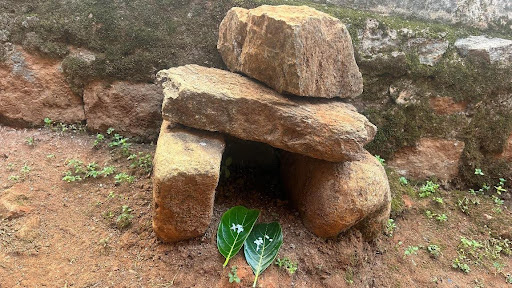Staff and PhD
Director
Dr Elena Mucciarelli
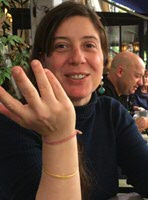
Elena Mucciarelli, director of the Institute of Indian Studies, is Gonda Lecturer and Assistant Professor of Hinduism in the Sanskrit Tradition at the Faculty of Religion, Culture and Society at the University of Groningen. She is member of the ERC-funded research project NEEM (The New Ecology of Expressive Modes in Early-Modern South India), directed by David Shulman, and has a vast experience in various international and interdisciplinary scholarly teams.
After obtaining a joint PhD in Indic Studies from the Universities of Tübingen and Turin (2011), Dr. Mucciarelli was appointed research assistant at Univerisità degli Studi di Cagliari (2012-2013), and at the University of Tübingen (2016-2017) for the creation of the "Gundert Portal". In 2014-2015 she was principal investigator in the research project “Kings of the Wild: The Re-use of Local and Vedic Elements in the Legitimation Process of Medieval Karnataka” financed by DFG and carried out at the University of Tübingen. From 2017 to 2020 she has been research fellow at the Martin Buber Society, Hebrew University (Israel).
In her research, Mucciarelli focuses on the cultural history of South India combining philology, anthropology, and media studies. Her holistic approach brings together the study of primary sources in several languages and field work, especially in South India where she has been going for the last 10 years to study and document ritual practices as well as a unique form of engendered temple theater tradition. Mucciarelli's scholarly interests encompass the study of performative and ritual traditions, the conceptualization of magic and healing through the analysis of ritual practices and textualized knowledge, and the articulation of materiality and cultural techniques in relation to indigenous categories.
Staff
Dr Peter Berger
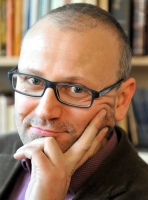
Peter Berger is Associate Professor of Indian Religions and the Anthropology of Religion at the Faculty of Religion, Culture and Society at the University of Groningen. Since 1996 he is working with Indigenous communities (Adivasi) in the south of the Indian state of Odisha, geographically part of the mountain range called Eastern Ghats. He has conducted long-term fieldwork there especially with the Gadaba community and has published extensively on ritual, food, values, cosmology, conversion & cultural change and cereal cultures. While his previous monograph (Feeding, Sharing and Devouring, 2015) described and analysed in detail the (alimentary) ritual system of the Gadaba, his recent book is wider in scope (Subaltern Sovereigns, 2023, Open Access). It investigates the indigenous conceptualizations of kingship through a comparative analysis of festivals and myths in the Koraput region of Odisha.
With René Cappers (Groningen Institute of Archaeology) and Roland Hardenberg (Frobenius Institute, Frankfurt) he is currently leading a cluster of connected research projects on Cereal Cultures, co-financed by the Dutch Research Council (NWO) and the German Research Foundation (DFG). A more recent research interest concerns Adivasi related forms of education, which was one of the main topics of the Winter School at IIT Delhi in 2024.
PhD
Binesh Balan
Binesh Balan
Shilanjani Bhattacharyya
Socio-cultural dynamics of the resurgence of millets among Adivasi shifting cultivators in Odisha, India
Shilanjani Bhattacharyya completed a B.A. in Social Sciences and an M.A. in Women’s Studies at the Tata Institute of Social Sciences, India, and is currently a PhD student at the Faculty of Religion, Culture and Society. For her master’s research, Shilanjani studied the everyday experiences of spirituality among women ‘Bauls’ of Bengal in eastern India, who dissent against heteronormative orthodox religion and its associated discriminatory practices through songs and esoteric rituals. Shilanjani has also worked with the Tata Trusts and the Ministry of Women and Child Development of the Government of India facilitating the implementation of the National Nutrition Mission.
As a joint PhD student with the University of Groningen and Goethe University Frankfurt, Germany, Shilanjani explores the socio-cultural dynamics of the resurgence of ‘millets’ in Odisha, India by focusing on certain adivasi (indigenous) communities of shifting cultivators who continue to engage with millets for subsistence, exchange, and ritual practices, despite its marked decline in the wider population. The project tries to ethnographically understand how millets are emerging as actors of continuity and change that contribute to significant cultural transformation among adivasi communities, especially in the realms of social organization, labour relations, cosmological ideas, and religious practices. The research particularly interrogates how adivasi religious institutions get imbricated in the cultivation processes of millets and inflect adivasi worldviews in the face of various changes in the processes of production, distribution, and exchange of millets. The research situates and analyzes how religious norms and practices are reflected in the everydayness of adivasi life, especially in their attempts to negotiate with and work through significant changes in state policy as well as broader socio-economic conditions in eastern India.
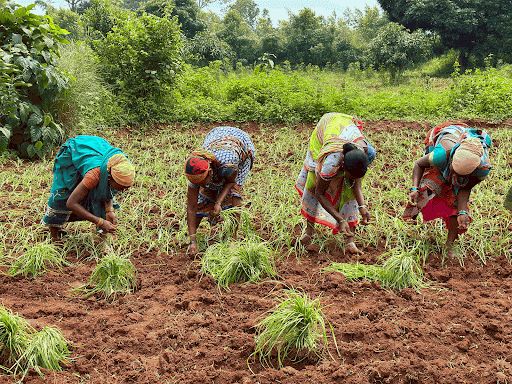
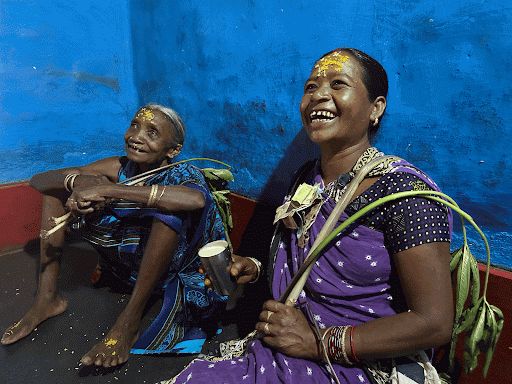
Ashutosh Kumar
Contextualizing millets in the social and cultural life of the Didayi of Odisha, India
Ashutosh Kumar is a PhD candidate in the NWO project titled “Salvage crop, “Savage” people”, at the Institute of Indian Studies in the faculty of Religion, Culture and Society. He has worked with the Oraon and Kondh Adivasi of Jharkhand and Odisha in India for more than 8 years. His engagement with the Adivasi communities enabled him to observe that their lives were woven around agriculture. However, the rapid change in agriculture management and technology in the given developmental regimes has reshaped the community's everyday lives. His observation made him focus on the transformation of labour practices, seed saving and usage, and food security in the communities.
His current engagement in his PhD project is with the Didayi of Odisha, India. Didayi are shifting cultivators and grow various kinds of cereal crops, among them various millets, on their swiddens which have served as a staple cereal for generations. Despite being an important cereal for the Didayi and many other Adivasi communities it has been only recently that the focus of policy makers has shifted towards millets. In the last two decades, millet has been widely studied for its nutritional and environmental properties. This has resulted in the revival and promotion of millet by various governments, including Odisha. However, there is no investigation into how the Didayi cultivate millets or what role these millets crops play in the social and cultural life of the community. With the ethnographic study of the Didayi Ashutosh aims to examine the role of millets as a social and cultural resource. At the same time, he will also reflect on the impact of the revival of millets on the social and cultural life of Didayi.
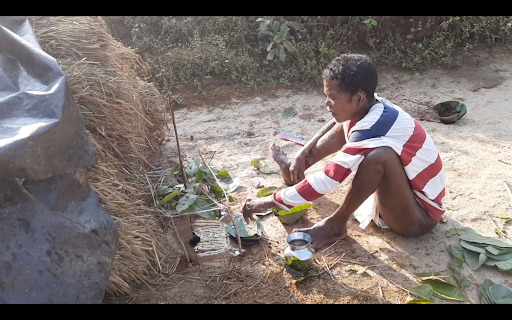
Nidhi Trivedi
Between continuity and change - An ethnographic study of the Parenga Poraja and their relation with staple cereals
Nidhi Trivedi is a PhD researcher at the Faculty of Religion, Culture, and Society. She holds a bachelor's degree in social work from the College of Social Work, Nirmala Niketan, Mumbai, and a Master of Arts in Development Studies from Azim Premji University, Bengaluru. Nidhi gained valuable experience working with the Munda, Oraon, and Khadiya Advasis (Indigenous people) of Jharkhand. In the NWO-funded project "Salvage crop, ‘Savage’ people," her sub-project focuses on the Parenga Poraja, an Adivasi community in Koraput, Odisha, who are primarily engaged in rice and millet cultivation. Her doctoral research aims to study how millets and rice are embedded in the community and their life worlds, as well as how they relate and respond to the changing valuations of cereal crops in the current socioeconomic and cultural environment. Additionally, she examines the effects of the ongoing millets revival strategies in India on traditional farming practices. She further investigates how diverse local knowledge systems are shared and transferred intergenerationally while exploring multidimensional changes in the lives of Parenga Poraja. By analyzing local practices, ideas, worldviews, and choices, her study hopes to identify the role of cultural diversity in preserving biodiversity.
